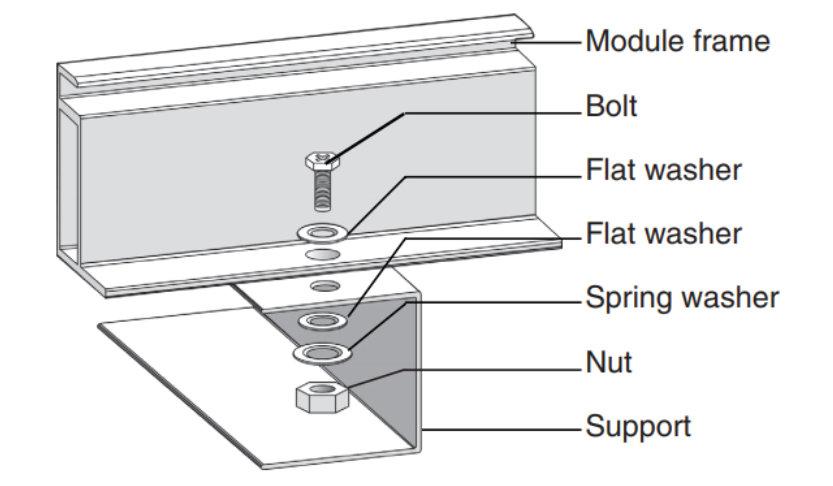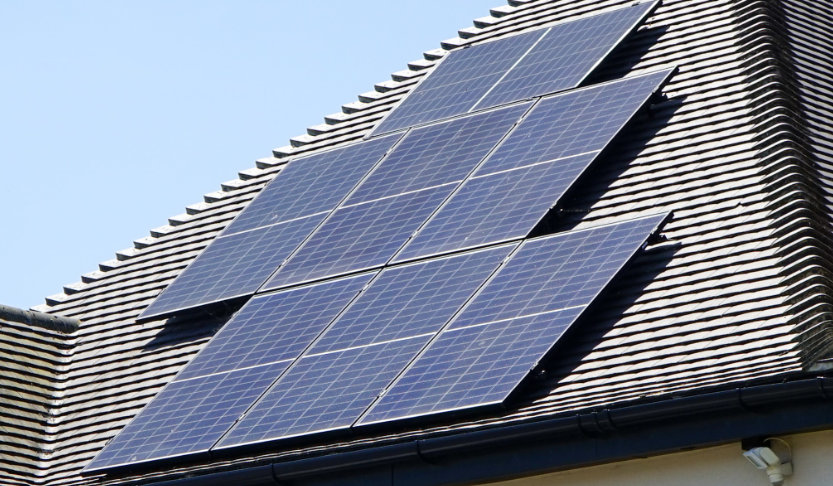No, solar panels will not ruin your roof. This is because there is a variety of safe, customized racking options to attach solar panels to your home’s roof, whether your roof is angled, flat, shingled, asphalt, metal or made of any other material. Here’s what you need to know when you’re considering a rooftop solar system.
Solar Panels Do Not Harm Your Roof
Even though installing solar panels will not damage your roof, there are a few things to consider before determining if a rooftop solar installation is right for your home. Good quality solar panels last a long time. Most panels are guaranteed for 25 years, but their actual lifespan may be much longer. Most residential rooftops, on the other hand, do not last nearly as long. If your roof is in need of repair or may soon need to be replaced, it is a good idea to do so prior to installing your panels. Once your rooftop solar system is in place, replacing or repairing your roof becomes more complicated and costly.
You will also need to determine if your roof can bear the added load that will be introduced by your solar system. Before adding any weight to your roof, you will need an expert to assess the maximum load that your home’s engineering is designed for. Building codes vary across the country; in many states, buildings are designed to withstand the load associated with snow accumulating on the roof.
When you meet with a solar installer on-site, they will assess your roof and help you navigate these two issues, including arranging for an engineer to do an assessment of your roof.
Will Installing Solar Panels Cause My Roof To Leak?
No, the chances of developing a leak in your roof do not go up with the addition of panels on your roof. Some mounting equipment does penetrate your roof. Usually, this type of equipment is used to mount solar panels on residential asphalt shingled roofs.
If this is the type of system you are considering, it is not something to worry about. Special fasteners have been developed that create a watertight seal on every penetration site.

There are also many types of mounting equipment available today that do not require any penetration of your roof. It is important to use a quality solar installer who is familiar with the mounting equipment that will be used on your roof. It is also a good idea to understand the warranty that comes with your installation and to inquire as to who is responsible in the unlikely case that any type of leak does develop.
Solar Panels can Protect Your Roof
Because quality solar panels are resilient in all weather conditions, your new system can protect your roof from the impact of weather and debris. You can think of a solar panel system as an extra layer in weatherproofing your roof against the sun, rain or snow, potentially extending your roof’s lifespan by a decade or longer.
Speak with a Recommended Installer in Your Local Area
Remember to contact a good quality solar panel manufacturer first when looking to discuss your concerns about your home’s unique roof.
Inexperienced installers can provide misleading information about what is safe or inadvertently damage your roof during the mounting process. Don’t try to install solar panels yourself.
A trusted manufacturer can recommend a professional installer that can come and evaluate your roof at no charge. During the on-site visit, the installer will discuss with you the best way to mount your solar panels, how much it will cost and how the warranty works. The installer can also make recommendations while providing you with knowledgeable answers about fitting and set-up, financing and incentives, local regulations and technical compliance, and what your warranty covers. For more information on what to expect at this meeting, check out the blog: Choosing the Right Installer for Your Rooftop Solar System.
Enjoy the Sunshine
After installation, most solar systems, and the roof beneath them require little to no maintenance. This leaves you with only one job: enjoying the sunshine.
